The Road to Becoming a Better Writer: Writing Tips from an Editor
Lucy (Editor)
The heart of a story lies in the strength of its writer. As an editor, I’m exposed to an extremely diverse range of stories, writers and styles, and I need to know the rules and use the tools to help refine those stories and make them the best they can be.
Everyone has a story in them, but not everyone has the tools, strategies and determination to become a better writer. To some people, writing it seems just comes naturally. But writing is a craft, and it takes practice. But how to practice is also important.
Stephen King, in his brilliant memoir On Writing says, “If you want to be a writer, you must do two things above all others: read a lot and write a lot.”
So, let’s break those two things down.
- Read a lot.
The best writers all have something in common: they are avid readers.
Read widely. Read books you like, read books you don’t normally like, and definitely read books that are similar to the kinds of things you want to write. Read books on writing. Read books on grammar. All these things will start to equip you with the tools you need to become a better writer.
Being exposed to good writing allows you to experience style, structure, plot development, the creation of characters and the art of good narration. You can’t be a good chef if you don’t enjoy eating.
It’s thought that if you read a lot, you’re more likely to mimic stories that have already been written or fall on trends that have been done to death. But nothing could be further from the truth. If you know what’s already out there, you know when something is different and you’re onto a totally new idea.
Steven Pinker, author of The Sense of Style, says that reading a lot is how you develop a ‘writerly ear’.
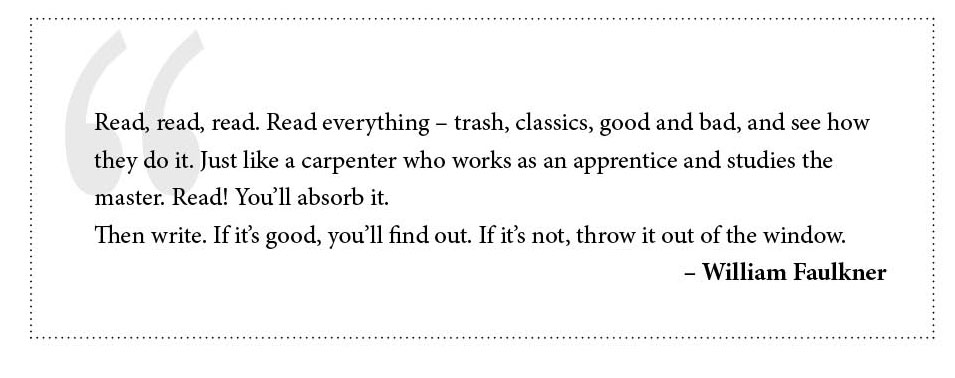
- Write a lot.
Be diligent. Create a writing schedule that suits you, have a writing goal each day, and stick to it. Stephen King recommends that your writing space has a door that you can shut, and to keep it shut until you reach your goal. One word at a time. He also recommends closing the curtains and minimising distractions, but I think if staring out a window works as inspiration for you, then use it. So minimise distractions, or find out what background noise works for you. And no, social media isn’t one of the good distractions.
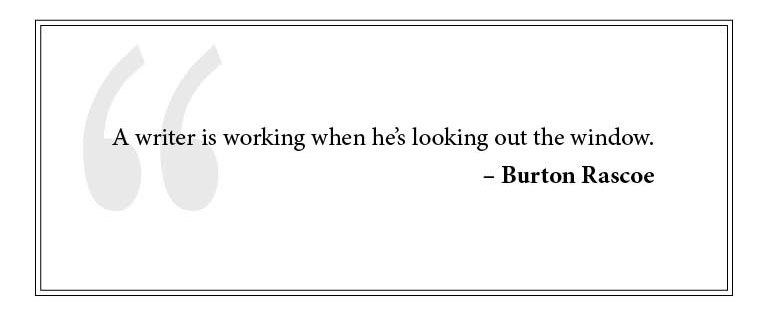
Apart from reading and writing, you will also need to have some kind of a relationship with grammar and vocabulary. Relax, I’m not going to give you a grammar lesson right now – just encourage you to look into it yourself!
Fall in love with the craft of writing. If you’re not in love with it, then learning the rules (and how to break them) will be a tedious task and seem like a waste of time. Find the fun in your desire to become a better writer.
Explore different writing styles until you find what works for you. One way you can do this is to emulate the style of your favourite writers as an experiment. Not to copy them, but to learn what they do well while you’re trying to find your own voice.
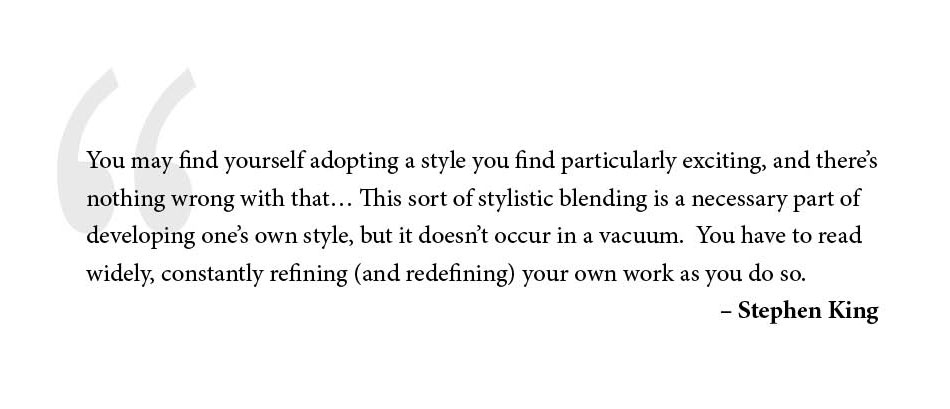
You should also try to develop an understanding of basic story structure:
- Introduce the reader to the setting and the characters, then bring in conflict and explore the character’s goals.
- Develop the story and characters through the creation of obstacles to build tension. These can be emotional obstacles, not just physical. Continue to raise the stakes.
- Resolve with a climax and tie together all the loose ends. In order to have a good climax, it’s often necessary to have an “all is lost” moment.
You need to know the basics before you can bend the rules and play with them.
Learn about the individual parts that make up a book, including narration, description, dialogue, plot and characters.
Character building comes from an understanding of how people behave in the real world. Observe the people around you, their curious habits when they think no one is watching, and your own thoughts surrounding the normalities and peculiarities of everyday life. Think about observational comedians like Jerry Seinfeld, Ricky Gervais and Ellen DeGeneres and how they draw attention to ordinary aspects of everyday life in a humorous way. Draw on your own experiences, feelings and emotions and imbue these into your characters.
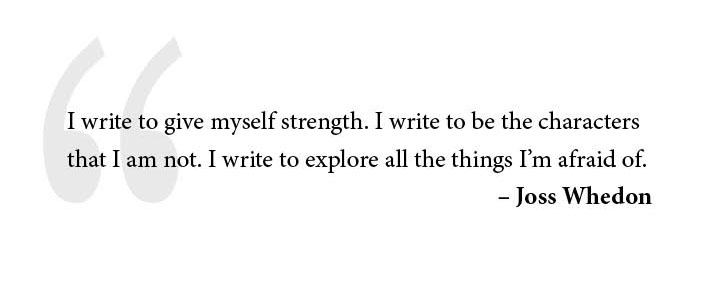
Description is one of the most important parts of a novel. But there is a fine line between too much description, which is taxing to read and detracts from a novel’s momentum, and too little description, where readers are not fully taken into the world you’re creating.
Are you using too many adjectives and adverbs? Have you spent whole pages describing a new, fantasy world you’ve imagined with no thought to who the protagonist is and how they engage with this world?
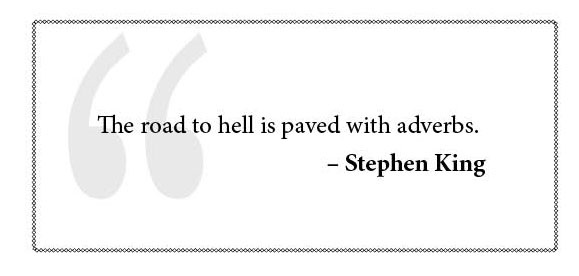
Leave readers wanting more. Are you telling people too much at once? Readers are smart – allow them to read between the lines. Think about what readers need to know now, and what you can leave them wanting, waiting, to find out. I have always found this to be one of the key components of creating pace, tension and suspense.
And always, always remember to let your novel sit for a while once you’re satisfied it’s finished (Stephen King recommends a minimum of six weeks, or at least until you’re no longer tempted to get it out and tweak it some more). Then read it again, as a reader and a critic, not a writer. Would you read this book? Would you pay $29.99 for this book if you found it in a bookstore? What makes it stand out? How would you convince people to buy it over another similar title? What other books would fans of your book also read?
Being a good writer isn’t easy. It takes a lot of time, practice and determination. But everyone has to start somewhere, and knowing what to learn, how to learn it and what tools to use is the first big step to becoming a better writer. And don’t forget the famous words of Ernest Hemingway: “The first draft of anything is shit.”
